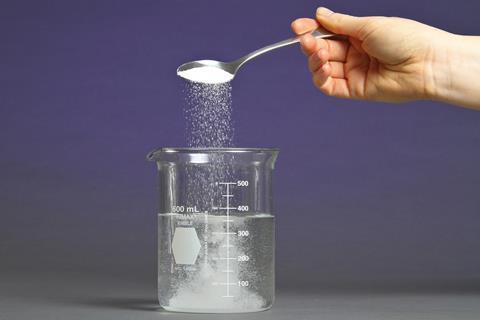Use this activity to tackle common misconceptions and elicit discussion surrounding controlled variable investigations
Controlled variable investigations are a key part of 11–14 curriculums. Students learn about the different types of variables and how to control them, as well how they affect the validity, repeatability and reproducibility of an experiment. Written practical reports are a useful way of having students show they really understand the differences between the variables, the importance of controls and the need to be explicit in how they are controlled.

One quick and easy way to do this is with so-called ‘wrong reports’, where a ‘student’ has made some mistakes in their planning or write up. Give each pupil a copy of the wrong report worksheet and ask them to identify and correct the errors. This wrong report focuses on an experiment investigating how long different types of sugar take to dissolve.
This activity will get your students thinking about how important controlled variables are to an investigation and you can use the answers to open up a class discussion of key points, for example how ‘fair test’ is shorthand for ‘a well-controlled investigation’. Find more tips for teaching this topic to your younger students in the Education in Chemistry article How to teach controlled variable investigations at 11–14.
Downloads
Controlled variable investigation wrong report
Editable handout | Word, Size 73.38 kbControlled variable investigation wrong report
Editable handout | PDF, Size 0.11 mbControlled variable investigation wrong report - answers
Editable handout | Word, Size 72.67 kbControlled variable investigation wrong report - answers
Editable handout | PDF, Size 0.16 mb


















1 Reader's comment